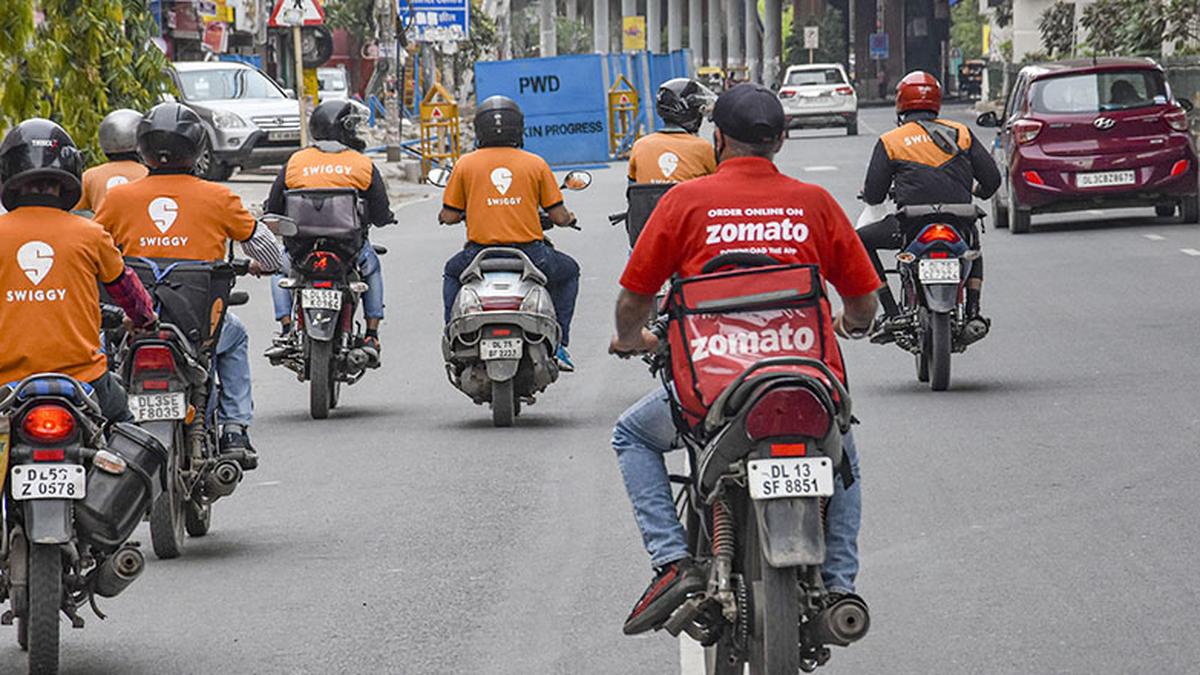Image used for representation purpose only.
| Photo Credit: PTI
What started off as a small experiment — a ₹2 “platform fee” on Swiggy in 2023 — has now grown into an industry standard across e-commerce and quick commerce platforms alike. The fee is no longer ₹2 either: Swiggy now charges ₹10 as a platform fee. There is GST applicable on top of this: one user fumed on social media site Reddit two years ago: “There’s now a GST on platform fee. A fee Zomato/Swiggy invented.” The fees are netting relatively modest sums — Zomato said in its report for the 2023–24 fiscal that the line item earned the firm ₹83 crore that year.
But they may be setting the stage for something larger: platform fees are now being charged across all major food and grocery delivery platforms, like BlinkIt, Swiggy, Zomato and Zepto. Even Amazon has started charging a ₹5 “marketplace fee,” something it doesn’t appear to charge users in other countries. Spokespeople for Swiggy and Zepto did not respond to a request for comment. A Zomato spokesperson said, “This fee helps us keep the app running smoothly, invest in product improvements, and continue delivering a smooth and convenient experience for our users. GST is applied as per government regulations and the restaurant’s confirmation.” Amazon said in a blog post when it started charging this fee last month that the surcharge is a “common industry practice,” and that it wouldn’t be applicable on bill payments and digital purchases.
Platforms generally have multiple sources of revenue in a single order: while food delivery players make money from restaurants by charging a commission of 15–25%, grocery delivery apps own the inventory they’re selling, pocketing the margins of the products flying out of their dark stores. But margins remain slim, Digvijay Ghosh, Partner of Consumer Products and Retail at EY-Parthenon told The Hindu.
Mr. Ghosh said it was “inevitable” that such fees would start being charged by platforms. “Obviously all the platforms are looking to have a focus on profitability and build on that,” he said. “Traditionally, there have been a lot of investments which the platforms have made in the shape of discounts, and in building the tech infrastructure which drives these platforms.”
Why not buff up prices elsewhere instead of adding a fee at checkout? Comparison shopping of sticker prices discourages that, Mr. Ghosh said, as consumers may tend to compare pre-checkout prices and shop based on that. The strategy has some risk of attracting buyers’ ire, Mr. Ghosh said: “I’m pretty sure that some of this will go through a bit of hit or miss depending on where they see consumers reacting adversely.”
The fees are a “growing concern from a consumer point of view,” Amol Kulkarni, director of research at the Consumer Unity and Trust Society (CUTS), a consumer advocacy group and think tank, told The Hindu. “If it is becoming an industry standard, and all the players are in tandem appearing to increase their prices, there is a concern around anti-competitive practices and entities and platforms acting as a cartel to increase prices for consumers when a product is sold on platforms.”
There is a “transparency and information asymmetry” problem too, Mr. Kulkarni said. Conceding that players were free to increase prices — “I’m not suggesting for a second that we should regulate prices,” — Mr. Kulkarni says that there is nonetheless a need for “clear transparency in terms of what are the charges and the consumer should know them” upfront.
Published – July 18, 2025 01:20 pm IST
